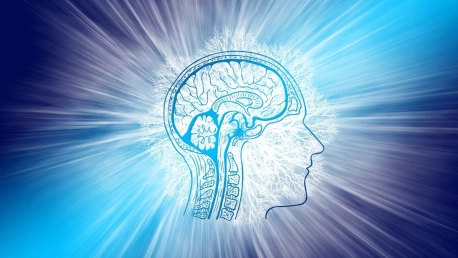With dementia cases rising globally, healthcare innovation is crucial. The Icahn School of Medicine has made strides by utilizing machine learning in a study to predict the life expectancy of dementia patients. This method marks a significant advance in the realm of artificial intelligence, offering potential for better, more individualized care. As dementia presents an increasing public health concern, incorporating AI into medical practice could revolutionize treatment approaches and outcomes. This technological application not only highlights its ability to adapt to complex health conditions but also underscores the urgency to develop smarter, data-driven solutions to manage and understand dementia’s progression. The Icahn School’s research is a pivotal step toward exploiting AI’s capabilities for the enhancement of patient-centered care in dementia, suggesting a hopeful trajectory for tackling this challenge through innovative, informed medical interventions.
Exploring the Trajectory of Dementia Through Innovative Research
Innovations in Predicting Dementia Outcomes
The team at Icahn School of Medicine has made remarkable progress in the field of dementia care by pivoting toward understanding patient outcomes. By harnessing the power of machine learning and analyzing comprehensive patient data, they have been successful in identifying trends and markers that are predictive of mortality risks in dementia patients. This initiative is a departure from the traditional diagnostic-focused approach and promises to revolutionize treatment strategies. Predictions about how dementia might progress for individuals would enable more nuanced care plans, equipping patients and their caregivers with insight into future challenges, thus enhancing preparedness for what lies ahead. This advancement represents a pivotal shift toward personalized medicine in dementia, highlighting the potential of data-driven prognosis in transforming patient support and management.
Data Power: Machine Learning at the Forefront
The study, which boasts an impressive sample size with over 45,275 participants and 163,782 visit records, showcases the power of extensive data analysis. What stands out in this research is the discovery that mortality in dementia patients can be predicted more accurately by neuropsychological test results than by traditional markers of aging and health deterioration. This insight is particularly notable for its potential to revolutionize healthcare by implementing machine learning techniques. Such technology could profoundly impact the medical field, offering a future where treatment plans are intricately customized, taking into account the particular progression pattern of each patient’s disease. This approach could lead to more effective management of dementia, as it leverages precision medicine to predict health outcomes with greater accuracy.
Implications and Future Improvements of AI in Healthcare
Expert Perspectives on Machine Learning in Dementia Prognosis
Assistant Professor Dr. Kuan-lin Huang has been instrumental in demonstrating the significant capabilities of machine learning for medical applications. He emphasizes its transformative impact on understanding complex clinical scenarios and improving patient care. Despite the technology’s advancements, Dr. Huang cautions against over-reliance on machine learning models, recognizing that they are not without their limitations. Their predictive power, although substantial, should not overshadow the intricacies of individual patient conditions. As machine learning integrates further with healthcare practices, Dr. Huang advises medical professionals to consider its benefits critically. He suggests that while these tools offer advanced insights, the complex and individual nature of each patient’s health journey demands careful consideration and human judgment. This balanced approach ensures that the technology serves as a complement to, rather than a replacement for, the expertise of healthcare providers.
The Continuum of Technological Advancement in Personalized Medicine
The research team is fully dedicated to advancing their work even beyond their recent discoveries. With a focus on enhancing the precision of their mortality predictive models, they’re planning to integrate additional factors, including how patients respond to treatments and their genetic profiles. They are also exploring the potential of deep-learning technology to further fine-tune their predictions. The necessity for such advanced techniques is growing, especially as dementia rates are on the rise, positioning the team’s efforts as critical components in the evolution of patient care. As they forge ahead, their innovations have the potential to bring about a transformative impact on the healthcare landscape, offering a new level of accuracy that’s essential for effective disease management and improved patient outcomes. This tech-assisted approach to medicine is indicative of the broader trends in healthcare where precision and personalization are becoming increasingly prominent.
The Broader Impact of AI in Dementia Care
Advancing Personalized Dementia Interventions through AI
The integration of machine learning in managing dementia is set to greatly enhance the care provided to patients. Machine learning offers a means to customize treatments based on the unique risks and factors specific to each individual patient, which is a substantial leap forward from one-size-fits-all approaches. This technology is on the brink of changing the landscape of dementia care by substantially increasing the accuracy of patient prognoses. Such advancements will empower healthcare professionals to deliver more precise and effective support to not only the patients but also to their families as they navigate the complexities of the disease. The potential of AI in this field is significant, offering a proactive approach to treatment that could delay progression and improve quality of life, representing a profound shift in the management of dementia.
The Onward March of AI in Improving Healthcare Outcomes
With dementia cases expected to triple by 2050, the financial and social strain on global healthcare is enormous. A recent breakthrough by the Icahn School of Medicine shows promising signs of how technology can revolutionize care for dementia patients. The study hints at a future where healthcare technology integrates more deeply into personalized treatment strategies. Innovations in AI are crucial in this regard, as they have the potential to not only manage the growing challenges posed by dementia but also to significantly improve the lives of affected individuals around the world. This advancement could mark a pivotal point in the convergence of tech and healthcare, offering hope for more effective management of dementia and ultimately enhancing patient quality of life on a global scale.









